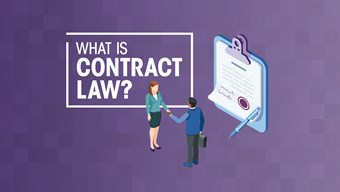Robin White explains what it’s like to be a transgender woman in law.
“I spent a long time hiding in plain sight,” says employment barrister Robin White, who transitioned in 2011 at the age of 47. So, what was it like, walking up the steps of Old Square Chambers on her first day back at work?
“If you’ve ever been on a rollercoaster, it’s the moment when you go over. You crank up the incline and over the top to the drop. However awful fitting into society’s view of how you should be, nothing can prepare you for that moment. Hopefully, the rest of your life will be like a rollercoaster too – fun and exciting. I’ve had the most tremendous support from my chambers. My colleagues said there was always a part of me at my core that they couldn’t get at. I don’t have to hide who I am any more. Imagine being a fundamentally honest person but having to lie in every social interaction to every person you meet about who you are? I was like the carapace, the shell part of the insect that is shed. It’s a tremendous relief.”
White is a leading authority on transgender discrimination law and recently co-wrote a book with her chambers colleague, Nicola Newbegin, A Practical guide to Transgender Law, which she believes is the first legal book to focus on gender reassignment. Published in May 2021, it provides a comprehensive guide to legal issues such as education, healthcare, employment and housing as well as an in-depth look at the Equality Act 2010 and the Gender Recognition Act 2004. White explains: “There’s a lot of shouting and toxicity around and we wanted to write a sensible, calm statement of what the law is. It’s for the layperson as well as the practitioner and is priced to be accessible.”
For White, one of her favourite parts of her job is cross-examining witnesses. “You need a great deal of preparation to make it seem effortless – you have to know the circumstances better than the witness – but it’s the fun bit of the job and can really make a difference. There are times where everything can change,” she says.
And what does it feel like to win a case? “When you achieve a win, you don’t appear to touch the pavement.”
Her best-known case is Taylor v Jaguar Land Rover; a landmark judgment which established that non-binary and gender-fluid people are protected by the Equality Act. Here she acted for Rose Taylor, an engineer at Jaguar who was harassed and discriminated against at work after coming out as gender-fluid. At trial, White cross-examined four managers from Jaguar, each of whom ended up saying, “we didn’t realise – if we’d known we’d have acted differently”.
The law relating to non-binary gender is an area in which White would like to see reform. She explains: “The UK government under Theresa May was shaping up to reform the Gender Recognition Act 2004 but has now dropped its plans for reform. The Act currently only recognises binary gender. While the case of Taylor recognises non-binary genders in the workplace, non-binary people currently don’t have acceptance from the UK government. The first non binary passport is about to be issued in the US and a number of western liberal democracies allow people to identify as non-binary. The laws relating to binary transgender people are, in my view, quite workable, but non-binary people currently fall between the cracks in the law.”
While general awareness of transgender issues has increased since 2011, White is concerned about the “noise” on transgender issues coming from sections of the media and from some people with gender critical beliefs. Some people are suggesting that “transgender people being accommodated in society is harmful to society and to women and girls and/ or gay people, and it’s just not true. It’s a narrative that has parallels with how gay people were regarded 30 years ago,” says White. “Every group includes good and a tiny minority of bad people, and the danger is to demonise a group, particularly a not well understood group. There are multiple examples in history of the dangers of this, and yet there are people who spend their time scratching around for something bad to say. If we put more attention into defusing the fear and working together, we could create a better society.”
One of the motivating factors for Whites’s discrimination law practice is her own gruelling experience. Law is her second career. Her first was as a British Rail operations manager, a job she enjoyed and was good at, until she was forced to leave due to discrimination.
“I was lucky to find a second career I loved,” she says. “I had a career taken away from me because I was transgender, and it was done in the most vile way. I had a really tough time. I have a three-month gap in my life where I have no memories. Someone more sensitive than me would not have survived. They said that although I was a really high achiever, there was something about me that meant I couldn’t do the job.
It became my motivation for a career in law – a sense of burning injustice. I had a lot of luck coming to the Bar, and I was fortunate and was able to join an amazing chamber of giants, but no one should think the Bar is going to be easy. You need ability and people skills and if it’s for you then you will know.”
This article was first published in our Verdict magazine – Read our Equality, Diversion & Inclusion Special now.



